NSF Awards Eight Engineering Students GRFP Awards
April 28, 2020 - Eight Samueli School students have received Graduate Research Fellowship Program (GRFP) awards from the National Science Foundation this year, twice last year’s number of engineering recipients. The GRFP is a competitive program that recognizes and supports outstanding students who are pursuing research-based graduate degrees in science and engineering.
The engineering students – Derek Aspacio, Lexi Lee Crowell, Luciano Groisman, Sierra-Elainna Gross, Jessica Herrera, Thinh Phan, Aaron Ramirez and Natalie Wu-Woods – are among 46 from UCI who received the honor along with three years of annual funding.
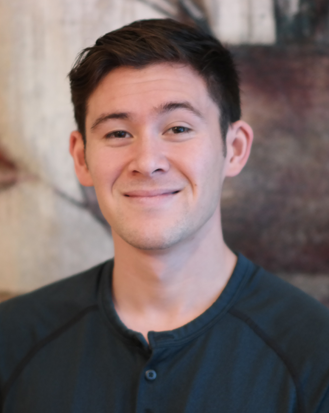
Aspacio, a chemical and biomolecular engineering doctoral student who is advised by Han Li, focuses on restructuring the central carbon metabolism in bacteria to create a tool that can be used to control the production of chemicals. The goal of the research is to develop an alternative to the use of petroleum in classical synthetic chemistry and shift the paradigm in chemical manufacturing from petroleum to sustainable biosynthesis within cells or enzymatic systems. This metabolic approach can be used to maximize biomanufacturing productivity and yield in the production of pharmaceuticals, specialty chemicals and commodity chemicals like fuels.
“I am honored and lucky to have this opportunity,” Aspacio said. “I am incredibly thankful for the guidance I have received from our CBE department while at UCI; special thanks to my adviser, Professor Han Li, and my colleagues for making this research possible.”
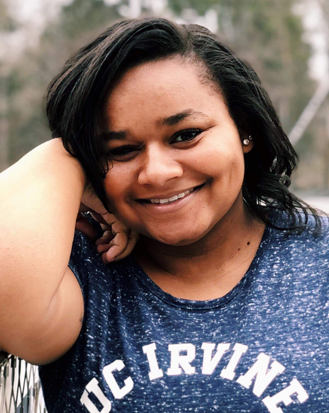
Crowell, a first-year doctoral student in chemical and biomolecular engineering, designs microfluidic devices for characterizing drug-resistant cancerous cells. She uses electrical impedance spectroscopy to study the dynamics of these cells to determine how factors like heterogeneity, growth and metabolism contribute to their chemoresistance. “I hope that this method will have the potential to monitor when cancerous cells become drug resistant and how to better facilitate therapies once chemoresistance occurs,” said Crowell, who is advised by Tayloria Adams.
Crowell is a first-generation college graduate who says she found mentors at UCI who she knew could provide her with the skills she needed to succeed personally and professionally. “I am very grateful for my past and current mentors for supporting me, and I am incredibly thankful to receive this fellowship,” she said.
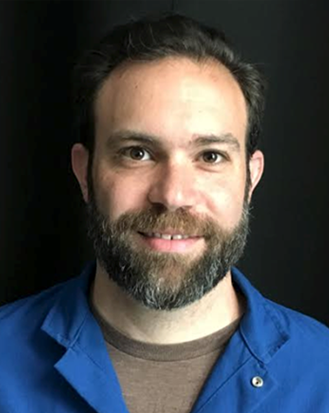
Groisman is an undergraduate majoring in biomedical engineering, advised by Elliot Botvinick and Ali Mohraz. The single parent of a child diagnosed with Type 1 diabetes, his research seeks to develop longer-lasting insulin infusion technology. “After years of dealing with my son’s Type 1 diabetes, I realized the available technology did not live up to its potential,” Groisman said. “This drove my desire to develop tools for better glucose management for my son and others who deal with this burden daily.”
He added that he’s grateful for the NSF funding, which “will allow me to focus on my family and my research to develop better technology to manage this disease.”
Groisman will continue his research this fall, beginning a UCI doctoral program in biomedical engineering; Botvinick and Mohraz will continue to advise him.
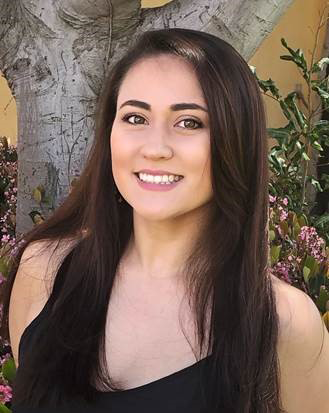
Gross is a first-year doctoral student in materials science and engineering who studies energy storage technologies. Advised by Ali Mohraz and Daniel Mumm, she focuses on the effects of morphology and chemistry on these technologies, specifically, bijel-derived systems that are scalable and have proven advantageous in energy applications. (Bijels are emulsion gels in which usually non-mixing liquids are prevented from separating.) “Research into energy storage system fundamentals and their mechanisms is important in order to develop more efficient and environmentally friendly devices,” she said.
Gross, who earned her bachelor’s degree from UCI, participated in undergraduate research as well. “I chose to continue researching at UCI due to the collaborative nature of the programs as well as the great faculty. With this support from NSF and the great environment at UCI, I believe I can make a real impact with my research,” she said.
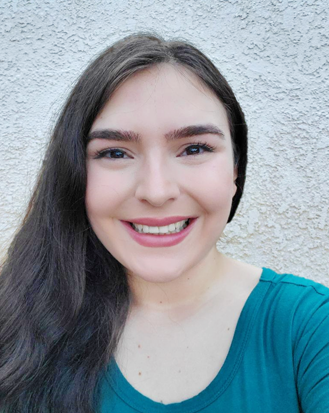
Herrera, an undergraduate who will receive her degree in biomedical engineering this spring, plans to pursue a doctorate in the UCSF-UC Berkeley joint Ph.D. program in bioengineering. Advised by Kyriacos Athanasiou, she researches tissue engineering of articular cartilage, the tissue that covers the ends of bones in joints and helps cushion and distribute forces during movement such as walking and running. By engineering replacement cartilage from cartilage cells, Herrera hopes to advance treatment options for those who suffer from cartilage degradation and osteoarthritis.
A first-generation college student, Herrera works to increase diversity in science and inspire students from underprivileged communities to pursue higher education. She conducts middle- and high school outreach in low-income communities for the Mathematics Engineering and Science Achievement (MESA) program, and started an organization called IV SOL Anteaters, which seeks to inspire students in the Imperial Valley, where she grew up, to continue their educations. “For me it is not only about getting an education, it is also about remembering where I come from and helping the younger generations get an education,” Herrera said. She thanked the California Alliance for Minority Participation, Athanasiou, her graduate mentor Evelia Y. Salinas and her family, adding, “I am very grateful and honored to receive this funding. It will help me accomplish my goal of becoming a professor and helping people through my research in regenerative medicine and tissue engineering.”
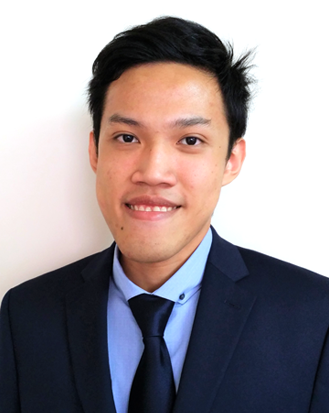
Phan, a second-year biomedical engineering doctoral student, is advised by Bernard Choi at Beckman Laser Institute. He is working to create a whole-brain optical imaging system that can monitor cerebral blood flow and metabolic activities in vivo in a quantitative manner, with the ultimate goal of picturing the brain's functional activities in diseases like stroke and Alzheimer’s. “The imaging system would aid in further understanding the overarching mechanisms of these diseases and could potentially lead to novel effective therapeutics,” Phan said.
He expressed gratitude for the NSF fellowship as well as appreciation to his advisers, coworkers and those who recommended him for the award. “I am absolutely grateful and honored to have received the award offer. With this funding, I will be able to continue my research for the next three years without worrying about financial instability,” Phan said.
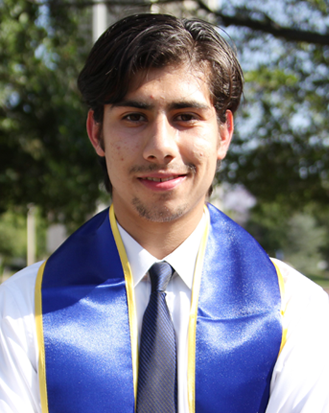
Ramirez, who is advised by Szu-Wen Wang, is a second-year doctoral student in chemical and biomolecular engineering. His goal is to develop a vaccine platform that can elicit a targeted adaptive immune response toward disease antigens. Specifically, his research involves engineering and constructing a protein nanocapsule that mimics a virus and then loading it with antigens of a specific disease. Antigen-presenting cells will uptake the nanocapsule and induce an adaptive immune response. A previous study using this strategy for cancer vaccines yielded tumor cell disintegration and significant delays in tumor growth, according to Ramirez. “My studies will further explore the use of this virus mimetic strategy by applying it toward infectious diseases such as Q fever and the flu, and other infectious diseases that currently do not have effective vaccines,” he said.
Ramirez said that when he first received word of winning the NSF fellowship, he did a “quadruple take” to confirm what he was reading. “With this opportunity, I hope to continue to improve as a student, researcher and member of the UCI community,” he said, adding, “I also want to further my role as an educator to mentor students of minority groups and ensure that the next generation knows they have the opportunities in STEM to succeed.”
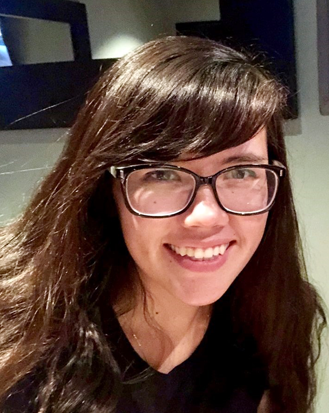
Wu-Woods, a senior majoring in materials science engineering, will begin a doctoral program in bioengineering this fall at Caltech. Her research, under the direction of Szu-Wen Wang in the Department of Chemical and Biomolecular Engineering, focuses on designing therapeutics and delivery mechanisms for patients with unregulated inflammation. This condition is associated with certain diseases like Alzheimer’s and rheumatoid arthritis. Specifically, Wu-Woods is designing biodegradable polymeric particles, which can be joined to a peptide that interacts with an anti-inflammatory receptor, to deliver these therapeutics. “I really wanted to work on a project that had clear applications and could eventually lead to new therapeutics. Therefore, Dr. Wang's research on drug delivery systems was a perfect fit for me, balancing my interest in biology and polymers, while emphasizing the importance of benchtop to bedside,” said Wu-Woods, who works alongside graduate student Andrew Rowley, an NSF GRFP recipient last year.
"I was very astonished to win the award but it was extremely validating to hear that other researchers have taken an interest in my career and ideas. Having this fellowship will allow me to focus on my research and spend my free time tutoring and mentoring undergraduates and high schoolers," she added.
Since 1952, NSF has funded over 50,000 Graduate Research Fellowships out of more than 500,000 applicants. Currently, 42 fellows have gone on to become Nobel laureates, and more than 450 have become members of the National Academy of Sciences. These eight Anteater engineers join a distinguished list of GRFP fellows, including former U.S. Secretary of Energy Steven Chu, Google founder Sergey Brin and Freakonomics co-author Steven Levitt.
- Anna Lynn Spitzer
